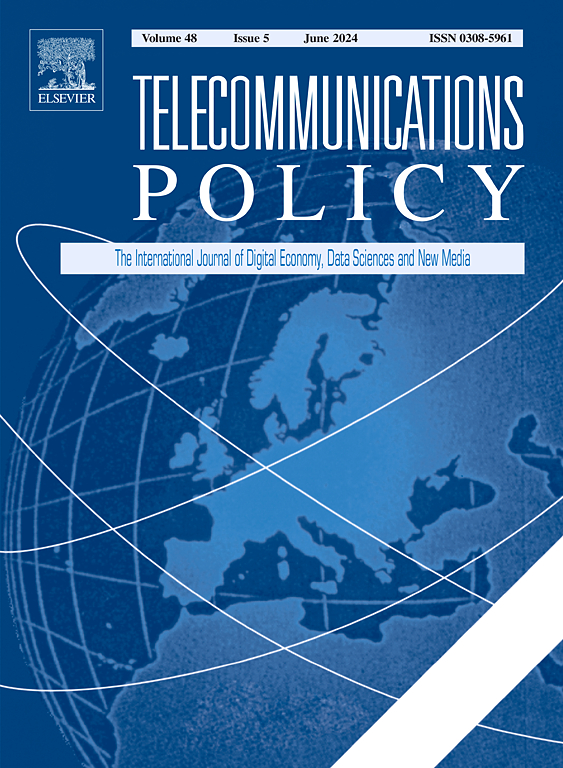Broadband infrastructure sharing as a catalyst for rural digital economy: A systematic review for developing countries
IF 6.4
2区 管理学
Q1 COMMUNICATION
引用次数: 0
Abstract
Lack of high-speed broadband connectivity remains a critical barrier to inclusive digital transformation, particularly in rural areas of developing countries. Broadband infrastructure sharing has emerged as a viable strategy to overcome this constraint, facilitating network expansion, bridging the digital divide, and consequently stimulating inclusive digital economic growth. Broadband infrastructure sharing allows multiple mobile operators (MNOs) to share network resources, significantly reducing capital and operational costs and expanding rural coverage. However, its deployment is fraught with multifaceted challenges that inhibit its full potential. This systematic review synthesizes existing literature to highlight both the potential benefits and prevailing challenges facing broadband infrastructure-sharing initiatives among MNOs. It further explores enabling policies, technological innovations, and collaborative business models that could accelerate adoption and sustainability. The review offers practical policy, economic, political and research insights to guide the sustainable deployment of broadband infrastructure sharing in underserved areas, thereby contributing to the broader discourse on digital inclusion and rural economic growth.
宽带基础设施共享作为农村数字经济的催化剂:对发展中国家的系统回顾
缺乏高速宽带连接仍然是包容性数字转型的关键障碍,特别是在发展中国家的农村地区。宽带基础设施共享已成为克服这一制约、促进网络扩展、弥合数字鸿沟、从而刺激包容性数字经济增长的可行战略。宽带基础设施共享使多个移动运营商(mno)能够共享网络资源,从而显著降低资本和运营成本,并扩大农村地区的覆盖范围。然而,它的部署充满了多方面的挑战,阻碍了其充分发挥潜力。本系统综述综合了现有文献,强调了移动网络运营商之间宽带基础设施共享举措的潜在好处和当前面临的挑战。它进一步探讨了可以加速采用和可持续性的扶持政策、技术创新和协作商业模式。该报告提供了切实可行的政策、经济、政治和研究见解,以指导宽带基础设施共享在服务欠缺地区的可持续部署,从而促进有关数字包容和农村经济增长的更广泛讨论。
本文章由计算机程序翻译,如有差异,请以英文原文为准。
求助全文
约1分钟内获得全文
求助全文
来源期刊

Telecommunications Policy
工程技术-电信学
CiteScore
10.80
自引率
12.50%
发文量
122
审稿时长
38 days
期刊介绍:
Telecommunications Policy is concerned with the impact of digitalization in the economy and society. The journal is multidisciplinary, encompassing conceptual, theoretical and empirical studies, quantitative as well as qualitative. The scope includes policy, regulation, and governance; big data, artificial intelligence and data science; new and traditional sectors encompassing new media and the platform economy; management, entrepreneurship, innovation and use. Contributions may explore these topics at national, regional and international levels, including issues confronting both developed and developing countries. The papers accepted by the journal meet high standards of analytical rigor and policy relevance.
 求助内容:
求助内容: 应助结果提醒方式:
应助结果提醒方式:


